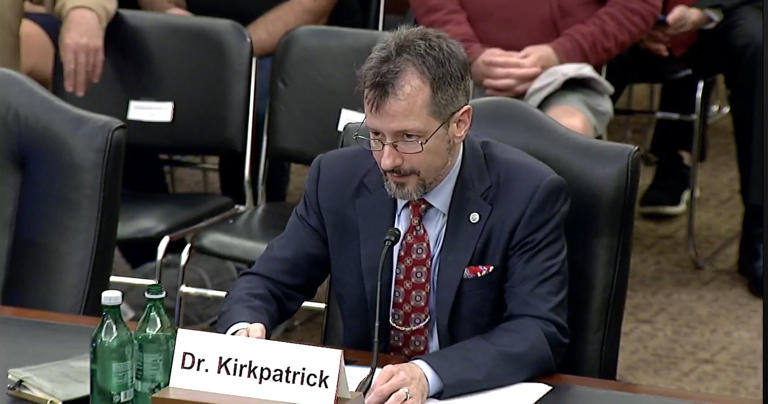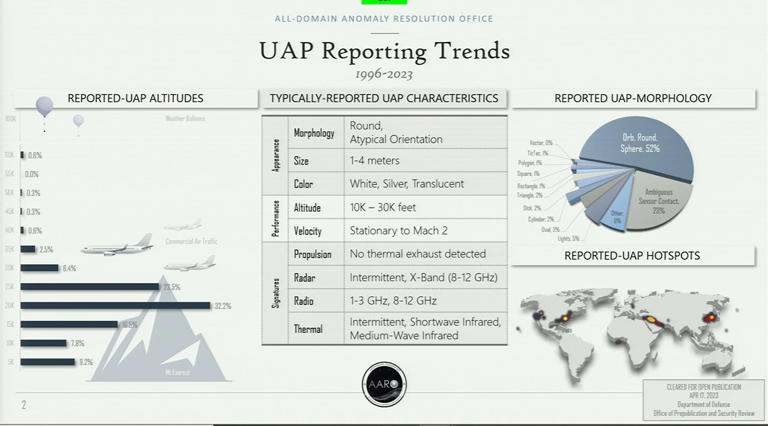Yesterday
Nearly 30 years after a California desert town successfully sued a utility company over contaminated water, an emerging piece of technology is being installed to bring some relief.
ABC News
Power of Water: Bringing clean water to the most remote water-starved areas
Duration 10:00 View on Watch
An engineering firm has set up hydropanels in Hinkley, California, which create clean water using a system that draws in moisture, air and the sun.
"There's no water connection anywhere. This is a fully off-grid autonomous technology," Colin Goddard of SOURCE Global told ABC News' Ginger Zee as he showed off an installed model.

A hydropanel installed in Hinkley, Calif., helps to produce clean water for residents.© ABC News
Even though some contend the technology's costs may be too high at the moment to bring water to such remote areas, some families who have been living there said the panels are a lifesaver.MORE: Erin Brockovich: the real story of the town three decades later
Roberta Walker, a Hinkley resident who worked with Erin Brockovich in her lawsuit against Pacific Gas and Electric for contaminating the water, told ABC News Live that the community - comprised of about 300 people - is still reeling from the chromium 6 that's in the ground.
Many of the homes in the area became uninhabitable and several families were forced to move out, she said.

Colin Goddard of SOURCE Global speaks with ABC News' Ginger Zee about hydropanels.© ABC News
"People that can't afford to buy or build anywhere else…because it's a toxic wasteland," she said.
Goddard said hydropanels have been installed in 50 countries around the world to help communities like Hinkley that barely have clean water access.
The solar-powered hydropanels use fans to draw air and push it through water-absorbing material, according to Goddard. The material traps the water vapor from the air, which is then extracted and condensed into clean water, he said.

Roberta Walker speaks with ABC News' Ginger Zee.© ABC News
"You can quite literally put these on the ground, point them towards the sun, and make your own drinking water," he said.
But with those benefits comes a major cost. Goddard said the panels, which last about 20 years, cost $4,000 upfront.MORE: Map: Where US cities are running out of clean water
Yoram Cohen, the director of the water technology research center at UCLA, told ABC News that those costs may not be sustainable. Cohen noted that the average person needs about 2 liters of water a day, but the hydropanels currently produce 3 to 5 liters for one household.
"If you are in an area where you have no water whatsoever… the question is why? Why would you want to actually develop residential [properties]?" he asked.

Hinkley, California's water is still not safe to drink for many families.© ABC News
Still, Maria Monroy, of Newbury Springs, California, told ABC News that the tech's upfront cost is worth it. She said she and her family had to rely on gallons of bottled water a month.
On top of the cost of the bottles, Monroy said she also had to spend 30 minutes driving to pick them up.

Children collect drinking water made from a hydropanel installed in California.© ABC News
"Hopefully other people do want to get them in their properties and be able to rely on it that way," Monroy told ABC News.
Walker said she's hopeful that the technology can help out her town and the people still living there, even if it will take more time.
"[You] have hope that there's going to be change in this world and that somebody, somewhere, somehow is going to figure out a way to clean up this land," she said. "But I hope that it will happen for my kids and my grandkids."














